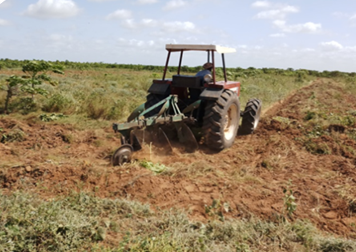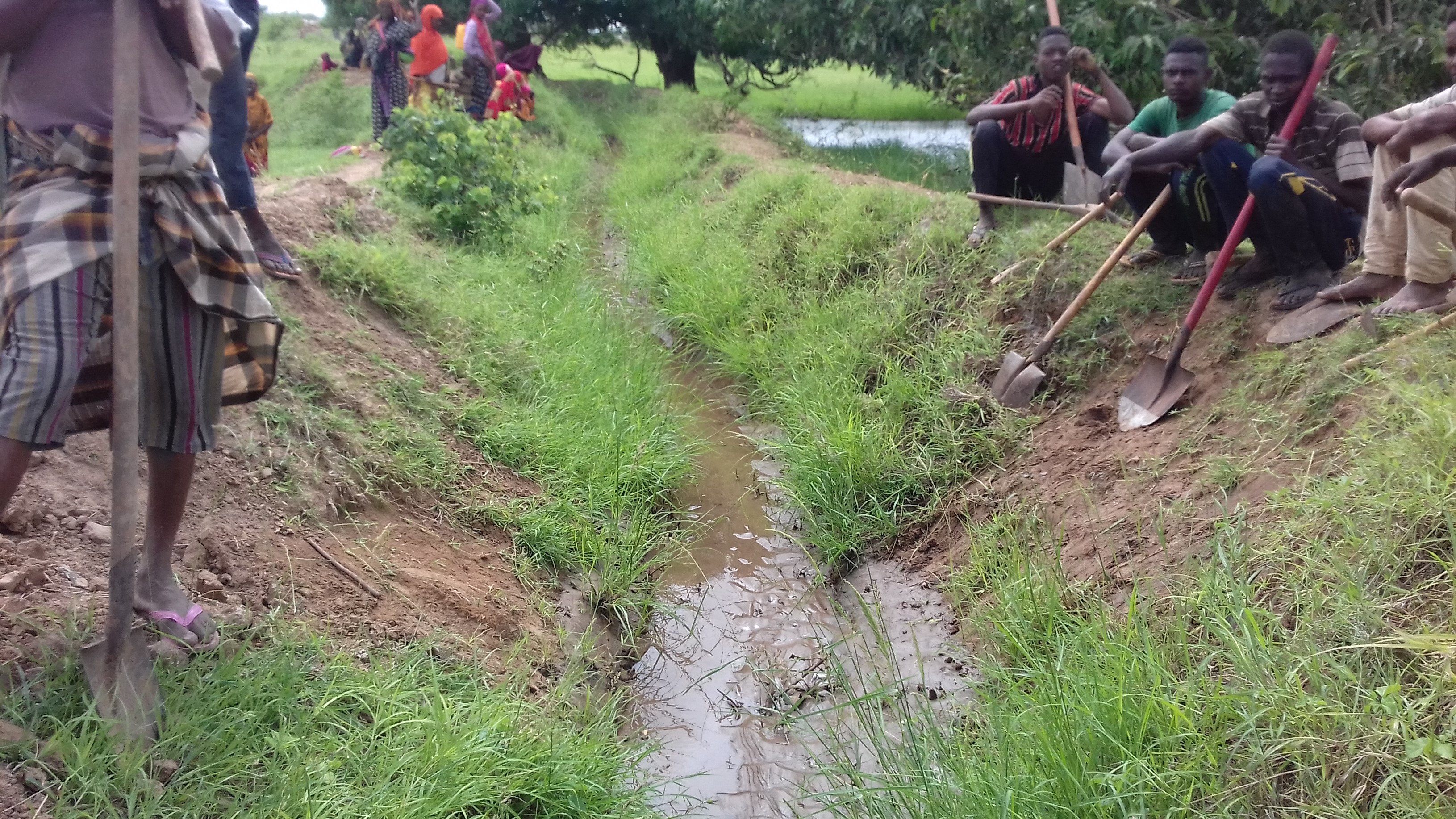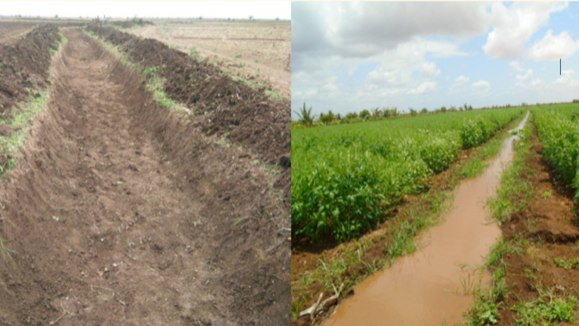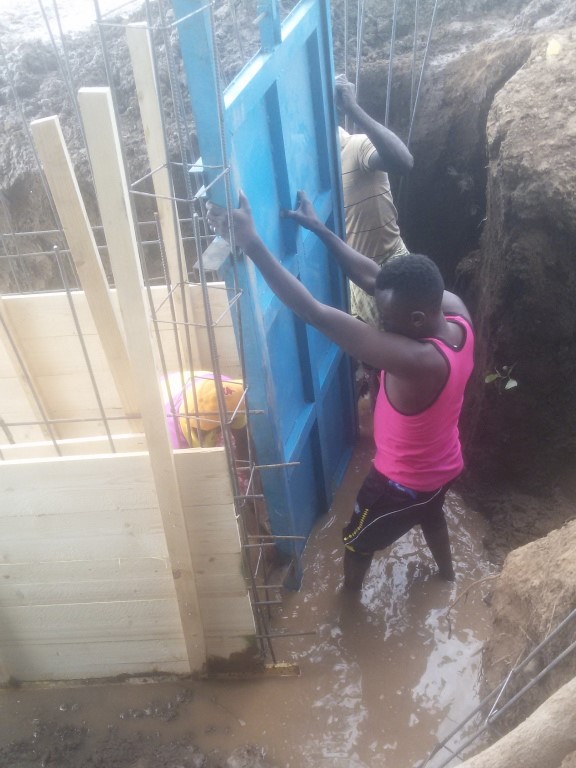Market-Driven Cash-for-Work Projects Show Promise in Somalia—and Beyond?
Sep 17, 2018
Editor’s Note: This post expands on a report originally prepared for the Centre for Development Results.
 The Somali peninsula—home to 14.32 million people—suffered a devastating drought in early 2017, leading to widespread crop failures and livestock losses that have dangerously affected the region’s food security. The Food and Agriculture Organization (FAO) estimates that 30 percent of livestock has been lost. In Somalia, losing crops and livestock means losing livelihood assets. Rural people struggling to sustain livelihoods often become more vulnerable to recruitment by extremist groups and are increasingly moving to the cities, exerting growing pressure on limited urban infrastructure.
The Somali peninsula—home to 14.32 million people—suffered a devastating drought in early 2017, leading to widespread crop failures and livestock losses that have dangerously affected the region’s food security. The Food and Agriculture Organization (FAO) estimates that 30 percent of livestock has been lost. In Somalia, losing crops and livestock means losing livelihood assets. Rural people struggling to sustain livelihoods often become more vulnerable to recruitment by extremist groups and are increasingly moving to the cities, exerting growing pressure on limited urban infrastructure.
Typically, the response to a food crisis consists of humanitarian measures such as cash transfers or commodity supplies—direct delivery designed to get resources into the hands of the beneficiaries as quickly as possible. However, the U.K. Department for International Development (DFID) and Danida, Denmark’s development agency, are funding a DAI-led program that brings a market lens to the challenge—in ways that may be applicable to fragile environments beyond Somalia.
The Promoting Inclusive Markets in Somalia (PIMS) programme works in all three Somali regions: Somaliland, Puntland, and South Somalia. PIMS is a market development project using the making markets work for the poor approach, or M4P, combined with a cash-for-work (CfW) component to address infrastructure constraints.
M4P projects address constraints within market systems where goods and services are exchanged. The objective is to improve poor people’s participation in those systems. Such projects often involve mapping and analyzing the value chains in the system, and focusing on those that show growth potential. Given its fragile environment, PIMS’ mandate is more holistic, and calls for the project to consider social impact in addition to growth potential as it weighs interventions.
CfW programming has emerged as a natural part of PIMS’ inclusive market growth agenda. The initial value chain analysis showed that infrastructure issues were inhibiting growth and made clear the potential benefits of removing these constraints. PIMS was able to launch its value chain interventions as a foundation, then layer on a CfW workstream as a complementary activity.
CfW as a Crisis Response
In 2016, to limit the danger that many Somalis face from drought, PIMS dramatically scaled up its CfW efforts. CfW projects, traditionally viewed as a way of providing assistance to people during emergencies, have typically paid little attention to sustainability. PIMS, by contrast, puts sustainability at the heart of its CfW programming, selecting interventions based on their sustainability, impact, and response. We determine whether a proposed intervention will a) deliver lasting infrastructure improvements that can be managed by the community; b) generate a significant economic benefit for that community; and c) provide an appropriate emergency response for the population under stress.
With these principles in mind, the PIMS team determined that canal rehabilitation would offer the most sustainable impact with immediate benefits for the community under duress. Although it had never been a priority, canal rehabilitation became a focal point as PIMS adapted to the deteriorating conditions. Concentrated in the Shabelle Valley of South Somalia, this CfW programming has resulted in additional land for production of sesame and other crops by improving irrigation during a vital growing season. At the same time, participants learn how to repair basic infrastructure and earn cash to compensate for their livelihood losses.

Workers ready to start canal rehabilitation in Shabelle Valley, Somalia. Photo by DAI.
PIMS also introduced mobile money payments for the work, addressing the challenge of moving large volumes of money around in rural areas. In a traditional disaster reconstruction scenario payment is a challenge, but even more so in areas with no government control. Using a mobile payment system kept workers from being pressed to handle physical cash and removed the danger and cost to the implementers of having to bring large sums of cash into conflict zones.
Creating Productive Relationships to Achieve Impact
All CfW programming was community-led in the planning stage. PIMS established community-led local management committees and provided training on sustainability, conflict management, and the proper use and management of renovated canals, so that the community could maintain its new assets after PIMS exits. As of November 2017, these assets amount to 87 kilometers of canals which have opened up more than 1,700 hectares of productive land. The community agreed canal rehabilitation was what they needed. The communities also saw the productive value the longer-term assets would generate.
It is not by chance that the communities and local firms became engaged with the PIMS CfW activities. Following the original value chain and CfW growth strategies, communities were mapped and relationships built along with prospective lead firms, providing partners for the community and PIMS team to engage with when the drought occurred. Having the existing relationships with the lead firms and communities was crucial.

A canal rehabilitated by a cash-for-work programme, Somalia. Photo by DAI.
The CfW canal rehabilitation took place in areas where the terrorist group Al-Shabaab had a presence, so PIMS’ access was limited. Careful monitoring procedures allowed PIMS to conduct remote activities and ensure duty of care for project staff, but local firms were needed to drive the community outreach and mobilization. It was particularly important, therefore, to present these firms with an economic incentive and compelling value proposition for their participation.
The local firms managed the activities in conjunction with the community as a win-win relationship. The firms invested to gain access to additional sesame crops from the new lands opening up as a result of the canal irrigation. The community benefited from the immediate payments for the canal rehabilitation, but also through the development of a productive asset (irrigated land) and a linkage with customers. Both parties won through the partnership agreement for future purchase of the sesame crop, providing a sustainable business model and an incentive for community farmers to continue to maintain the canals.
PIMS CfW Achievements
Feedback from all sides indicates the rehabilitation has contributed to substantially increased local crop yields and improved food security; a large-scale survey has just begun to complement these anecdotal reports with quantitative data. Unlike some donor responses that provide services for free, PIMS’ adaptive CfW initiative will minimize market distortion and allow market development after the intervention has ended.
The canal rehabilitation has directly generated 198,500 CfW days, with $595,500 distributed to participants through CfW days helping the community overcome the most severe impacts from the drought. Looking ahead, the project has designed three more projects that will see an additional 131 kilometers of canals rehabilitated (more than 5,000 hectares opened up)—plus 27 culverts and 26 water intake gates—entailing 140,000 workdays for participants and injecting $750,000 into the local economy through CfW earnings, contractor payments, and extension services.

The installation of a sluice gate by Somali workers in a cash-for-work programme. Photo by DAI.
The injection of liquidity provided through the initial canal projects came at a moment of critically constrained cash flow in the local economy and helped minimize price fluctuations at a time of worsening food insecurity. Delivering on the further pipeline of canal projects offers a form of “pre-insurance” as a livelihood mitigation measure, prior to any future drought. Given the increasing likelihood of a La Nina event and the associated climate variation in East Africa, such pre-emptive measures take on added importance.
CfW as a Broader Resilience Response
From the initial value chain growth strategies, PIMS had identified several potential other CfW activities which could be implemented in the future if circumstances dictate (such as canal rehabilitation for banana production). CfW is not a traditional method of drought response. But unlike cash transfer programmes, for example, it can deliver both rapid liquidity to stricken communities, on the one hand, and medium-term local revenue generation, long-term economic growth, and infrastructure assets, on the other. CfW projects therefore have broader potential in resilience programming.
It is always problematic to generalize, but in certain fragile states economic growth has been shown to be more crucial than political reform in preventing a return to conflict. A 2014 study in Somalia showed that the main self-reported reason given by former Al-Shabaab member for joining the group were economic. economic. National data is scarce, but recent estimates put the unemployment rate at 47 percent overall, and 67 percent among young people.
The unemployment crisis may be even worse in urban Somalia. Mogadishu, for example, had a 66 percent unemployment rate in 2015. In this context, it bears reiterating that recurrent drought is a key driver of migration, as seen again in Somalia this year. Somalia’s internal migration has placed significant pressure on urban centers. People who have lost their rural livelihoods are traveling to cities in search of jobs, but with limited opportunities available and a growing influx of job-seekers, these individuals may find themselves even more vulnerable, especially if they are young. To head off urban migration in times of rural uncertainty, rapid responses are needed.
In many fragile states like Somalia, humanitarian and economic development programs are moving closer together in DFID’s thinking, and implementers should be addressing these dual objectives in ways that are mutually supportive. In reflecting on PIMS’ combination of resilience programming with a market systems methodology, we hope to be part of the debate on how CfW initiatives can tackle emergency issues while also delivering enduring benefits in terms of economic growth and social stability.
James Naughton is the Technical Advisor and Investment Promotion Manager for Promoting Inclusive Markets in Somalia.